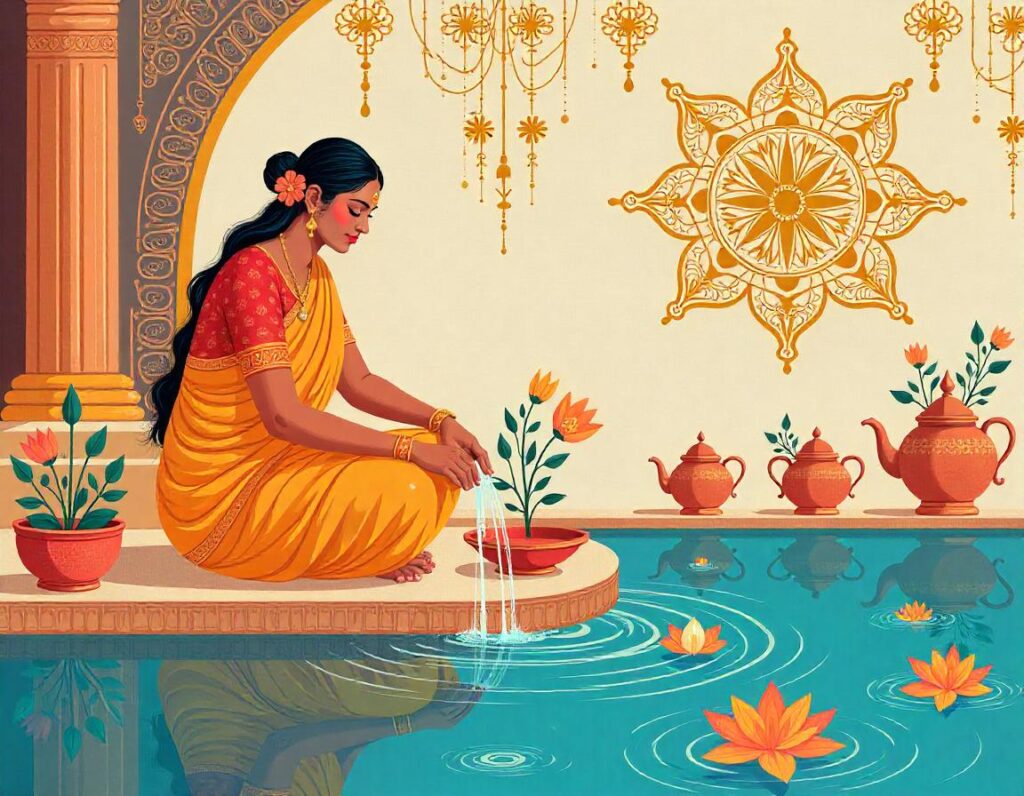
Hinduism, a rich tapestry of traditions and beliefs, places significant emphasis on cleanliness, both physical and spiritual. This isn’t merely about hygiene but is deeply intertwined with the spiritual and ritualistic practices that define Hindu worship. Understanding this importance offers a glimpse into how these practices cultivate spiritual purity and discipline.
Historical and Spiritual Significance
Ancient texts like the Vedas and Upanishads highlight the significance of ‘Shaucha’ (purity), encompassing both internal and external cleanliness. Internal purity involves cultivating a clear mind, free from negativity, while external purity focuses on physical cleansing. This dual approach is believed to elevate one’s spiritual state, enhancing concentration and devotion during rituals. Water, a powerful symbol of purification, plays a central role in many Hindu ceremonies. The concept of ‘Prakriti’ (nature) and its inherent purity further emphasizes the importance of environmental consciousness within the tradition.
Daily Rituals and Cleanliness
A devout Hindu often begins the day with ‘snana’ (a morning bath), a practice imbued with spiritual significance. Daily prayers (‘Sandhyavandanam’) incorporate specific cleanliness rituals. Wearing clean clothes, especially white garments symbolizing purity, is customary during prayers and ceremonies. Washing hands and feet before entering a prayer room or temple is a common practice, demonstrating reverence for the sacred space. Maintaining a clean home temple or shrine is also crucial, ensuring a pure environment for worship. Daily worship often involves the use of clean items such as fresh flowers, pure water, and food offerings.
Festivals and Ceremonies: Embracing Purity
Major Hindu festivals like Diwali and Navratri are marked by extensive cleaning and purification practices. Idols and temple premises are ritually cleansed before these celebrations. ‘Ganga Snan’ (bathing in the Ganges River) during the Kumbh Mela and other sacred occasions holds profound spiritual significance. Life milestones like weddings, naming ceremonies, and thread ceremonies (‘Upanayana’) also emphasize cleanliness as a vital component. Community celebrations adapt these rituals for larger gatherings, and the act of cleaning homes and surroundings is believed to invite divine blessings during festivals.
Ayurveda and Cleanliness
Ayurveda, a holistic health system, emphasizes the interconnectedness of mind, body, and spirit. Its daily routine (‘Dinacharya’) incorporates cleanliness practices, recognizing the link between physical purity and overall well-being. ‘Abhyanga’ (oil massage) and ‘Panchakarma’ therapies are Ayurvedic practices focused on cleansing and purification. Ayurvedic dietary guidelines emphasize clean, pure food for maintaining health.
Modern Adaptations and Poojn.in
Modern lifestyles can sometimes make adhering to traditional practices challenging. However, innovations like online stores, such as Poojn.in, offer authentic and hygienically packed ritual items, making it easier to maintain ritualistic cleanliness. Poojn.in provides a wide range of products, from Dasha Mrittika to Sapta Jal, supporting your spiritual journey with convenience and quality. Explore our collection of Pooja Samagri and other essential items. Discover brands like Cycle, Liberty, and Mangalam at Poojn.in.
Conclusion
Cleanliness in Hindu rituals is a timeless practice that connects us to our heritage and fosters spiritual well-being. By embracing these traditions, we honor the wisdom of our ancestors and cultivate a deeper connection with the divine. Poojn.in is here to support your spiritual journey by providing authentic and accessible ritual items, making it easier to maintain these sacred practices in our modern lives. Explore our diverse collection and discover everything you need for your spiritual needs.

